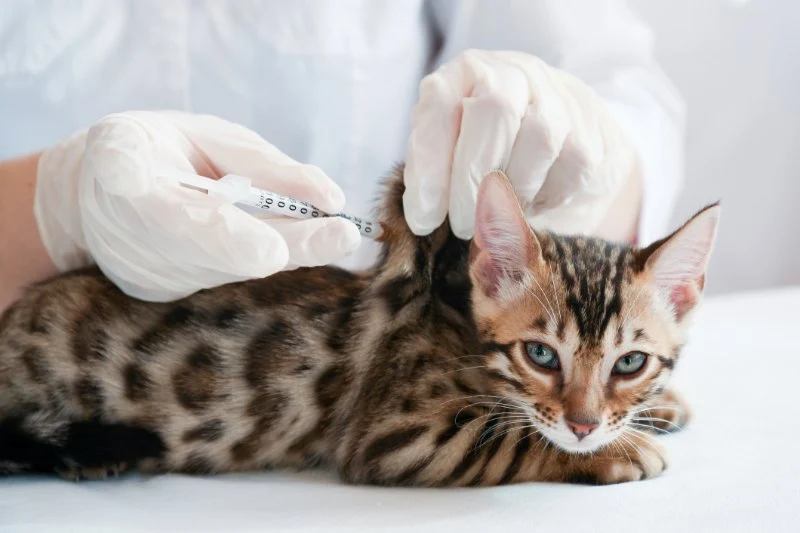
- 1 - The Importance of Kitten Vaccination
- 2 - Common Vaccines for Kittens
- 3 - Side Effects to Watch For After Kitten Vaccination
- 4 - When to Call the Vet After Vaccination
- 5 - How to Care for Your Kitten After Vaccination
1. The Importance of Kitten Vaccination
Vaccinating your kitten is one of the most important steps you can take to ensure their long-term health and well-being. Vaccines help protect against a variety of dangerous and potentially life-threatening diseases, such as feline distemper, feline herpesvirus, and rabies.
By vaccinating your kitten, you not only protect them but also help safeguard other cats in your community. Many vaccines work by stimulating the kitten's immune system, teaching it how to fight off infections in the future. Early vaccination ensures that your kitten has the best chance of growing into a healthy adult cat.
2. Common Vaccines for Kittens
When you take your kitten for their first veterinary visit, your vet will recommend a series of vaccines to protect against common diseases. Some of the most important vaccines include:
- FVRCP Vaccine: This vaccine covers feline viral rhinotracheitis, calicivirus, and panleukopenia (feline distemper). It’s typically administered in a series of shots starting around 8 weeks old.
- Rabies Vaccine: This vaccine is required by law in many areas and helps protect against the rabies virus, which is fatal to cats and can be transmitted to humans.
- Feline Leukemia Virus (FeLV) Vaccine: This vaccine is often recommended for kittens who may be at higher risk of exposure to other cats, especially if they go outdoors.
These vaccines are usually given in a series of shots over several months, starting as early as 6-8 weeks and continuing until about 16 weeks of age. Your vet will provide a vaccination schedule that best suits your kitten’s health needs.
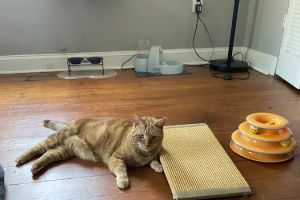
Fairmount Pet Shoppe
PhiladelphiaPhiladelphia CountyPennsylvania
2024 Fairmount Ave, Philadelphia, PA 19130, USA
3. Side Effects to Watch For After Kitten Vaccination
While kitten vaccinations are generally safe, like any medical treatment, they can cause mild side effects. It's important to be aware of these side effects and know when they are a normal part of the vaccination process and when they may require veterinary attention.
- Mild Lethargy: After a vaccination, it’s common for kittens to feel a little tired or less active than usual. This usually resolves within 24-48 hours and is not a cause for concern.
- Fever: Some kittens may develop a mild fever as their immune system responds to the vaccine. If the fever lasts more than a couple of days or becomes very high, consult your vet.
- Swelling or Redness at the Injection Site: A small bump or swelling at the site of the injection is a common reaction. This should go away within a few days, but if it persists or appears to cause pain, contact your vet.
- Loss of Appetite: A decreased appetite can occur after vaccination but typically resolves within 24-48 hours. If your kitten refuses food for more than 48 hours, it’s best to consult your vet.
- Allergic Reactions: While rare, some kittens may have an allergic reaction to the vaccine, which can manifest as hives, difficulty breathing, or vomiting. An allergic reaction requires immediate veterinary attention.
In most cases, these side effects are mild and temporary, but it’s important to monitor your kitten closely during the first few days after vaccination.
4. When to Call the Vet After Vaccination
While many side effects are mild and resolve on their own, there are certain signs that may indicate a more serious reaction. Here are some signs that you should contact your vet immediately:
- Severe Lethargy: If your kitten is excessively lethargic and unresponsive, it could indicate a more serious issue.
- Difficulty Breathing: Labored breathing, wheezing, or panting after vaccination can be a sign of a serious allergic reaction or other complications.
- Vomiting or Diarrhea: If your kitten vomits or has diarrhea that lasts for more than 24 hours, it’s important to seek veterinary advice.
- Severe Swelling or Pain at Injection Site: If the swelling at the injection site is large or painful, or if the site becomes red or inflamed, a vet visit may be necessary.
If your kitten shows any of these symptoms, contact your vet immediately for guidance. It's always better to be cautious when it comes to your kitten's health.
5. How to Care for Your Kitten After Vaccination
Proper post-vaccination care is essential to help your kitten recover quickly and comfortably. Here are some tips for looking after your kitten after they receive their shots:
- Provide a Quiet, Comfortable Space: After vaccination, allow your kitten to rest in a quiet, comfortable space where they can sleep and recover. Avoid overexertion for at least 24 hours.
- Ensure Fresh Water and Food: Offer fresh water and food to your kitten. If they’re not interested in eating right away, don’t force them; wait a few hours and try again.
- Monitor for Side Effects: Keep an eye out for any side effects and note when they occur. If your kitten shows signs of discomfort, call your vet for advice.
- Keep Your Kitten Indoors: Avoid taking your kitten outside immediately after vaccination. Let them rest and recover fully before exposing them to the outside world or other animals.
By providing a calm and supportive environment, you can help your kitten recover quickly and feel better in no time. Remember that while vaccinations are an important part of your kitten's health routine, they also require some care and attention to ensure a smooth recovery process.
If you're looking for high-quality vaccines and kitten care products, visit Omnia Pet to find the best items for your kitten’s health and well-being.

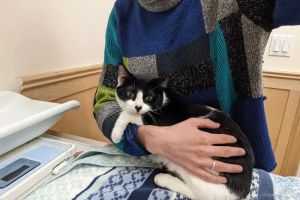

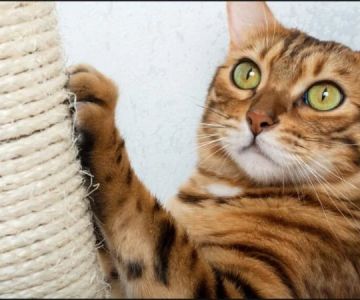
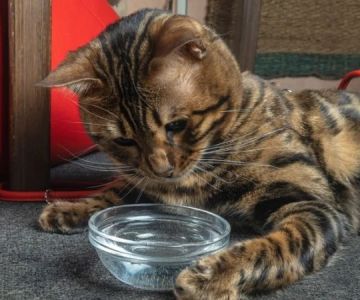



 Shillington Aquariums4.0 (232 reviews)
Shillington Aquariums4.0 (232 reviews) Pet Supplies Plus Newark4.0 (867 reviews)
Pet Supplies Plus Newark4.0 (867 reviews) San Dimas Animal Hospital4.0 (366 reviews)
San Dimas Animal Hospital4.0 (366 reviews) Family Pet Clinic4.0 (79 reviews)
Family Pet Clinic4.0 (79 reviews) Bayonne Veterinary Medical4.0 (317 reviews)
Bayonne Veterinary Medical4.0 (317 reviews) Coastal Puppies3.0 (155 reviews)
Coastal Puppies3.0 (155 reviews) The Best Slow Feeder Bowls for Cats That Eat Too Fast - Top Picks for 2025
The Best Slow Feeder Bowls for Cats That Eat Too Fast - Top Picks for 2025 Why Does My Kitten Have a Notched Ear? TNR Programs Explained
Why Does My Kitten Have a Notched Ear? TNR Programs Explained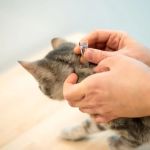 The Best Way to Remove a Tick from a Kitten
The Best Way to Remove a Tick from a Kitten How to Tell if Your Kitten is Part Wildcat – Signs and Characteristics to Look For
How to Tell if Your Kitten is Part Wildcat – Signs and Characteristics to Look For How to Train Your Kitten to Use a Scratching Pad
How to Train Your Kitten to Use a Scratching Pad How to Keep Your Kitten from Falling Off Balconies
How to Keep Your Kitten from Falling Off Balconies